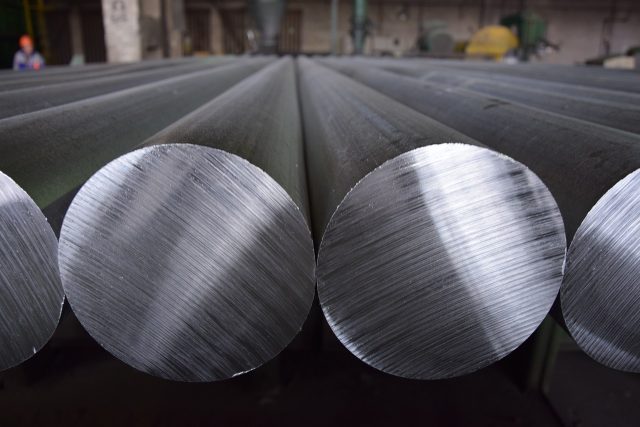
Italy confirms its leadership in aluminium recycling, with impressive results that place it at the top of the European rankings.
The recycling rate of aluminium cans reaches 93.8%, a figure that far exceeds the European average of 76%. Even for aluminium in general, Italy stands out with a recycling rate of 70%, a good 10 percentage points above the average of other countries on the continent. These numbers are a source of pride, but they reveal a structural problem that threatens the future of the national recycling chain. Despite the excellent results in recycling, the Italian industry does not fully exploit its capacity to treat aluminium waste. In fact, many scraps are not processed in Italy but exported to countries in the European and Asian “Far East”. Here, aluminium is recycled at lower costs, often with lower environmental standards than those imposed in the European Union.
According to data provided by Assomet-Centroal and Cial (the Aluminum Packaging Consortium), aluminium waste in Europe reached 1.4 million tons in 2023, an increase of 13% compared to the previous year. Despite the increase in the amount of material available for recycling, a significant part of this scrap leaves Italy, depriving the country of valuable industrial and environmental resources. Danilo Amigoni, president of Assomet-Centroal, and Stefano Stellini, general manager of Cial, highlighted the problem during a press conference at the Chamber of Deputies. “Aluminium scrap is being cornered on the market by Far East countries, where it is processed with lower environmental standards and through subsidies that damage Europe, and Italy in particular,” said Amigoni.
The phenomenon of unregulated exports entails a series of disadvantages for Italy. From an economic point of view, the national industry loses job opportunities and added value. In fact, processing scrap abroad takes resources away from a sector that could grow further, consolidating Italy’s leadership in metal recycling. From an environmental point of view, transferring scrap to countries with lower standards contributes to worsening global conditions. Aluminium is a 100% recyclable material and can be reused infinite times without losing its properties, but the recycling process must take place in plants that respect rigorous ecological parameters to ensure a real environmental benefit.
Amigoni and Stellini are calling for decisive action to prevent the benefits of recycling from being cancelled out by a less strategic management of exports. To solve the problem, Assomet-Centroal and Cial are proposing the introduction of more stringent European standards. The main request is to allow the export of scrap only to countries that are able to certify environmental standards equivalent to those of the EU. This would guarantee fairer competition and greater protection for the environment. A first positive signal has already come from Italian politics, which has included aluminium scrap and other non-ferrous metals in the national monitoring system for the export of critical raw materials. However, according to industry experts, further commitment is needed to transform these initiatives into binding regulations at European level. Aluminium represents a virtuous example of a circular economy, in which a material can be recycled infinite times without losing value. In a global context in which natural resources are increasingly scarce, aluminium recycling is a strategic resource for reducing environmental impact and promoting sustainable development.
Italy has demonstrated that it has the skills and infrastructure necessary to excel in this sector. However, to maintain its leadership position, the country must decisively address the problem of unregulated exports, transforming a weakness into an opportunity for growth. Being a leader in aluminium recycling is a significant achievement, but also a responsibility. Italy must continue to invest in its recycling supply chain, promoting high environmental standards and strengthening the competitiveness of its companies. Collaboration between industry and politics will be essential to address current challenges and build a circular economy model that can serve as an example for the whole of Europe.



 Subscribe
Subscribe